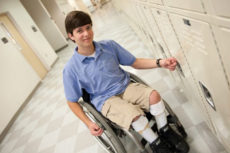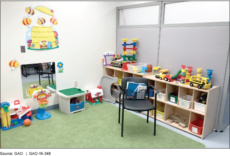Starting school brings children into regular contact with the larger world. Friendships become important and physical, social, and mental skills develop rapidly during this time. Children who feel good about themselves are more able to resist negative peer pressure and make better choices. This is an important time for children to become more responsible and independent. This is also a good time to start exploring potential lifetime interests such as hobbies, music, or sports. Developing […]
Tag: eparent
A Tale of Two Schools: Inclusive Culture Created With Purpose
It can be difficult to educate students with disabilities in an innovative and effective way. But NCLD recently visited two very different schools that were doing just that. These schools serve two very different populations, in two different parts of the country. We found an important commonality, though: an inclusive culture that was created with purpose. NCLD has been working to identify promising 21st-century learning practices in schools. We’re focused on how these practices serve […]
Varied State Criteria May Contribute to Differences in Percentages of Children Served
What GAO Found Differences in states’ eligibility criteria and the difficulty of identifying and evaluating some children suspected of having disabilities may contribute to differences in the percentages of children receiving special education services across states. The Individuals with Disabilities Education Act (IDEA), the primary federal special education law, requires states to have policies and procedures in place to ensure that all children with disabilities residing in the state who need special education services are […]
Ketogenic Diet for Kids with Epilepsy
The ketogenic diet may be a treatment option for kids with epilepsy who are not successfully treated with medication or are not candidates for surgery. This is a very high-fat diet that has been used for almost 100 years to treat epilepsy. Approximately two-thirds of children have a greater than 50 percent reduction in seizures, and up to 25 percent can become seizure free. The Children’s Hospital of Philadelphia’s Dietary Treatment Program takes a team […]
Epilepsy Seizure Medications
Seizure medications are usually the first treatment option to help control seizures in children with epilepsy. Learn more about the different medications. There are many types of medications used to treat seizures and epilepsy. Medications are selected based on the type of seizure, age of the child, side effects, the cost of the medication, and the adherence with the use of the medication. Medications used at home are usually taken by mouth (as capsules, tablets, […]





